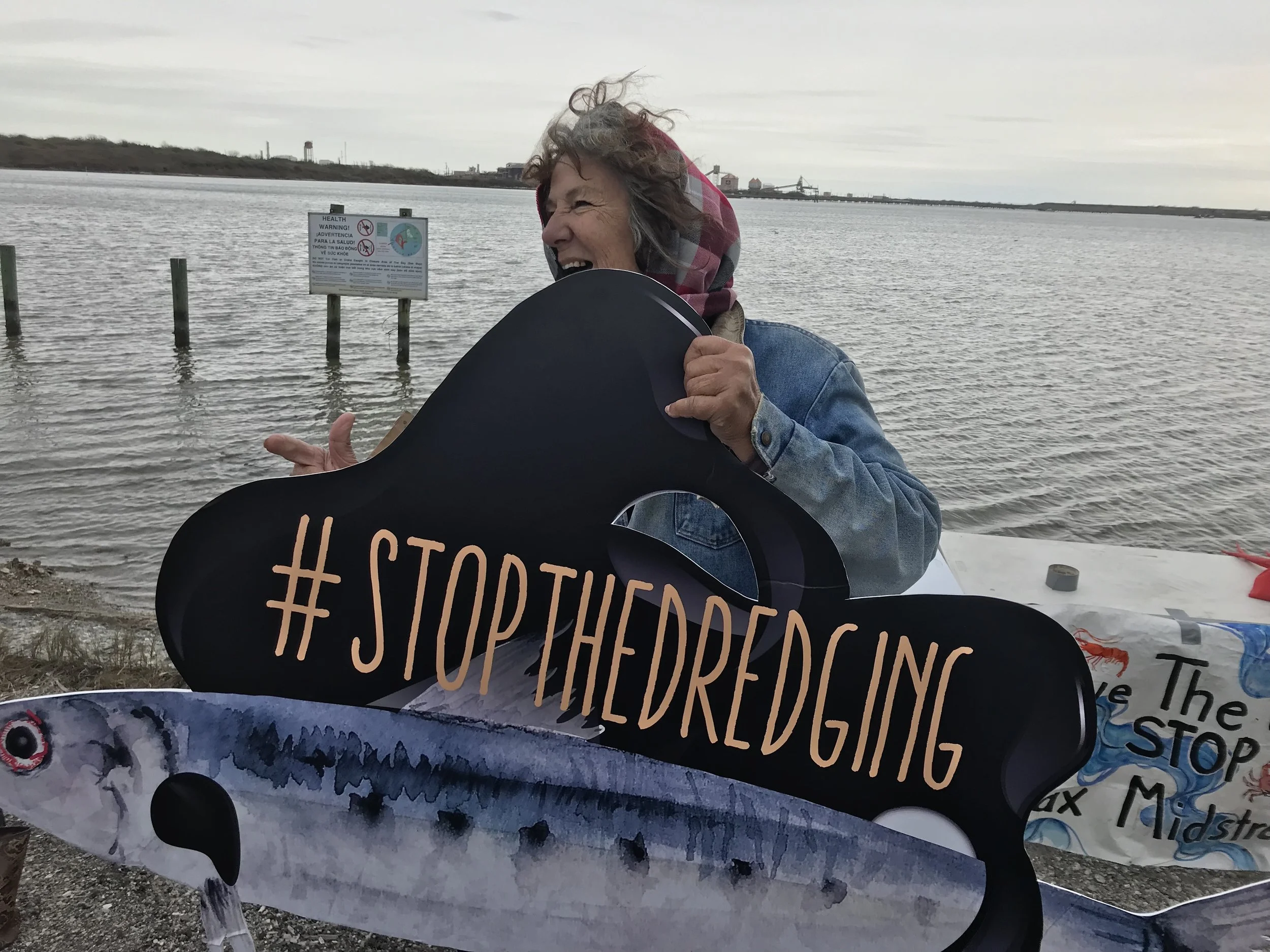A Cloud of Hope Amidst the Air Pollution: The Fight for a Cleaner Future in Texas Continues
The intersection between environmental justice and civil rights has always been apparent to TRLA, and we’ve fought against plastic pollutants in our Texas water and refineries causing decades-long toxic waste across the state.
Last week, the fight to overturn an air permit granted to an oil storage and export terminal was successful.
The burden pollutants have on real human lives and their communities is detrimental. A study published in 2022, which spanned over 17 years of data by Harvard and the Environmental Systems Research Institute, found that communities of color and low-wage workers experience air pollution more than any other group in the U.S.
Profit-driven projects often expose those to lingering financial and health effects, wreaking havoc on their lives.
"The consequences of prioritizing profit over people are extensively documented by scholars and intimately evidenced by the facts of this case. The longevity of this paradigm can make advocates question whether corporate wealth will always take priority over the rights of the individuals, like our clients, who make a living on the land these corporations pollute," said Karis Adams, TRLA Staff Attorney. "I think the Court’s ruling here answered that question unequivocally: absolutely not."
Big corporations and air pollution pose a threat to a small Texas community.
In 2020, Diane Wilson, a fourth-generation shrimper and San Antonio Bay Estuarine Waterkeeper, came to TRLA seeking to halt the expansion of an air permit. An air permit that would burden individuals who frequent the Lavaca Bay recreationally or for work.
Max Midstream, an oil and gas company based in Houston, filed an air permit to expand the Seahawk Crude Oil Terminal. The air permit was later authorized to construct new storage tanks, loading docks, and vapor combustors, releasing tons of nitrogen oxides, carbon monoxide, and other dangerous compounds into the air surrounding Lavaca Bay, which is already heavily polluted.
Community members found this problematic as they rely on the bay to bring food to their tables and many others across the state. With their livelihoods and health at stake, many local generational fishing, shrimping, and oyster workers felt the potential impact, as the community culture is rooted in their bay and the financial safety net it brings them.
Fueled by a shared sentiment, Wilson, San Antonio Bay Estuarine Waterkeeper, and Texas Campaign for the Environment took action. TRLA’s Karis Adams and Ethan Siegel co-counseled with partner organizations Earthjustice and Environmental Integrity Project (EIP) to bring the Max Midstream claim to the Travis County District Court.
“People tell the fishing communities all the time: You’re finished! Your time is gone!” said Wilson. “Progress is oil and gas and petrochemicals. The fishing communities, before the overturning, we're seeing the final nails in their coffins.”
Wilson expressed that for the first time in history, the local fishing community came together as a cooperative to stand up and fight. A fight powered by hope and the need for justice.
The case throughout the years and its impact on maintaining environmental and community integrity.
Over the last three years, Wilson, the other two parties, alongside their attorneys, fought tirelessly to halt the movement of the terminal expansion. This included the reevaluation of TCEQ’s one mile radius test, which limits challenges by those who live further than one mile from the site. In this case, it meant advocates who would feel air pollution impacts couldn’t challenge the permit as they lived beyond the one mile.
Over a year later, on December 5, 2023, the Court reversed the issuance of Max Midstream’s permit and sent the case back to TCEQ for a hearing. This means Texans, particularly community members, get to see their bay undisturbed for another day.
"When Texans impacted by the actions of polluters raise their concerns to TCEQ, TCEQ has an obligation to address those concerns with care and using the appropriate legal process," said Ethan Siegel, TRLA Staff Attorney. "This decision is a message to TCEQ: If you want to act, you cannot ignore the concerns of the people most impacted by your actions."
Diane Wilson in Lavaca Bay celebrating the overturning of the Max Midstream air petition.
The fight toward increasing environmental and climate justice across the state continues.
At its core, this suit exposes the negative impacts often brought on by large corporate expansions and what they do at the community level, from recreational and financial to planetary.
We’re inspired by activists like Wilson and our attorneys on staff who will go up to bat against these entities seeking to make a profit at the cost of human lives.
At TRLA, we believe empowering and creating legal access for folks in Texas affected by pollution and other environmental hazards is the best way to preserve their communities and their cultures. To support our work in leaving the planet and the lives of those who live in it better than we found them, please consider supporting TRLA: https://www.trla.org/donate.
“Today people can see a future, where before they once saw an end.”
– Diane Wilson

